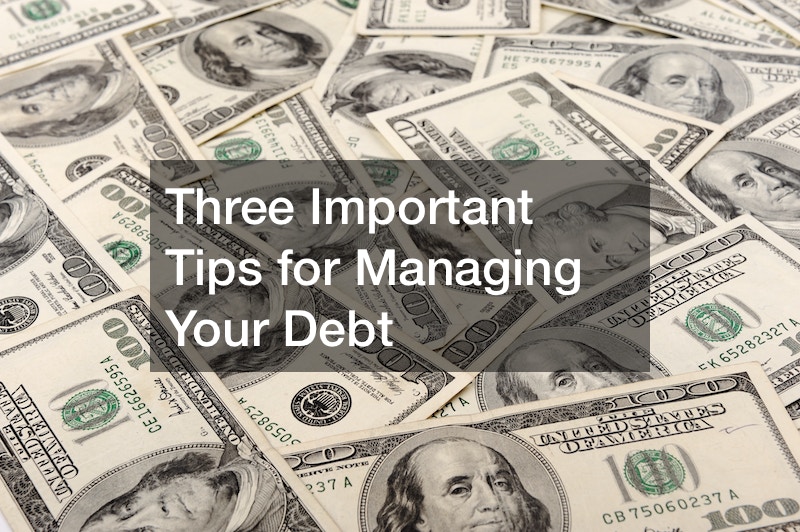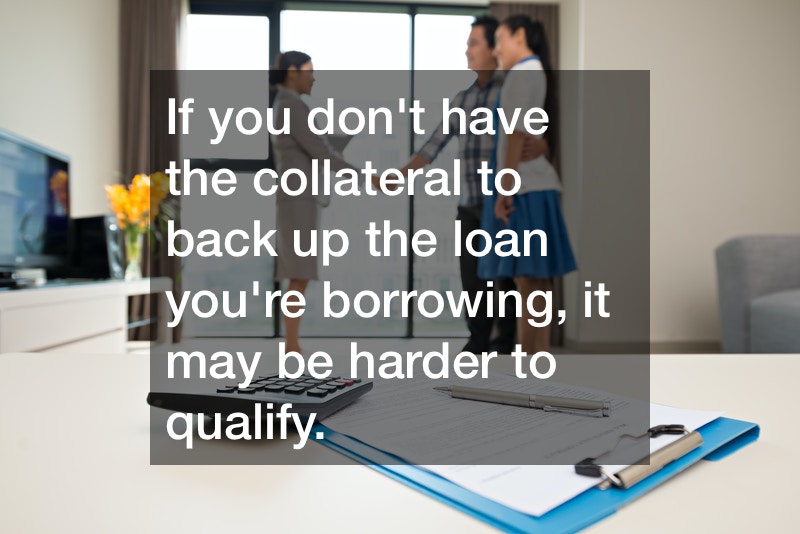
Currently, having debt is a common occurrence. Obviously, most people would prefer if they didn’t have debts, but that’s unlikely, particularly if you’re a business owner. However, keep in mind that good debt exists, and it can help you achieve a lot of your personal and business goals. Whether that’s a mortgage for your home and/or a car loan or a business loan to start or expand a business, good debt can help you do a lot.
However, too much debt, like high-interest debt, can impact your ability to pursue your personal and business objectives. Massive debts can cause people to sink into depression because if you’re a business owner, you might need to hire a bankruptcy law firm. Fortunately, you can use debt management tips to avoid serious problems. In this review, we’ll look at three important tips for managing your debt. But before we do that, we’ll look at how bad debt affects you and the good kind of debt. Let’s go!
What is Bad Debt, and How Does It Negatively Affect You?

Bad debt is when you borrow a lot of money to the extent that you cannot settle your debts. Borrowing has a spiraling effect that can be difficult to untangle yourself from. Skipping debt repayment will negatively affect your credit score. This makes it hard for you to get approval for future substantial loans like mortgages. In addition, bad debt can negatively affect your professional life to the extent that you can’t land a job.
What is Credit Score and How Does It Negatively Affect You?
A credit score is a figure tabulated through a formula gauging your ability to settle your bills, the debt you have, and how it compares to others. This figure is typically found on a credit report and shows your ability to handle debt; the higher the score, the better.
When the score is low, you’re restricted to future loans meaning you can’t access loan facilities like car loans, mortgages, or overdrafts. You won’t be able to get a credit card from financial trust services because you’re considered a risky borrower. If you’re a business owner, not having your personal credit in order can negatively affect your ability to secure business loans and goods from suppliers; you might not even be able to process your payroll.
What Is Good Debt?

Good debt is the reverse of bad debt; it’s cash you borrow from a credit facility to help you make more money. Good debt is the type of debt that helps you establish long-term wealth, ensuring you’re better off than you were when you decide to take a loan.
Think of good debt as an investment that will appreciate over time or generate income in the future. For instance, if you take a mortgage, whether it’s for personal or commercial real estate, the property will likely appreciate in value over the next couple of years. In addition, if you take out a loan to settle your college fees, it’s likely that you will land a job where you’ll make good money and even help you to clear the loan you took.
A car can also be considered good debt, albeit it depreciates in value. But if it’s for a business, it will help you arrive at sites quickly, which saves you time. But note that any type of debt will likely be approved if you have a good repayment track record. Now that we know what good and bad debt is, let’s look at three important tips for managing your debt.
Effective Debt Management Tips

Put Together a Monthly Budget
The first pick on the three important tips for managing your debt is putting together a good monthly budget. This helps you see the amount of money entering and leaving your accounts. As a result, you will have a rough idea of the amount of money you’ll have at the end of the month. After putting together your monthly budget, you should:
Know Who You Owe and How Much You Owe Them
Our first pick on the three important tips for managing your debt is putting together a reasonable monthly budget. After that, know who you owe and how much you owe them. Have an account updater that lists all your debts, including who you owe, how much you owe them, monthly repayments, and deadlines. One of the best solutions for this instance is a spreadsheet. It will motivate you to keep up with your financial obligations. Take time to document everything; it will help save you time and prevent late debt repayments.
Decide Which Debts to Settle First
You should decide which debts you should settle first. It can be challenging to determine which debts to settle first. If you’re a business owner, maybe talk to an accounting firm and get advice from a professional financial planner to help you cross off your list in the right order. Debts are different, and the objective should be to cross off those with the higher interest rates first because they cost you more; if you have a credit card, start with it.
Pay What You Can
It’s not set in stone that you should only pay what your lender requires of you each month. If you can pay a little more, do so to help you pay off your debt faster. But, the main objective is paying what’s required of you to ensure your debt doesn’t multiply. Missing your monthly payments makes it harder to settle your debts. For instance, if you fail to pay your credit card a couple of months in succession, your account can default. The minimum payment will prevent payable interests from accruing, which keeps your account in good standing.
Limit Impulsive or Irrational Spending
You should also set aside a specific amount monthly for luxuries or pampering yourself. Setting aside this small amount or adding a category to your monthly budget will help you spend your cash carefully and not exceed the set amount. It’s also vital that you understand your triggers for splurging and come up with a strategy to avoid them. For instance, if you’ve set aside a specific amount each month to go shopping for clothing, you won’t be tempted to window-shop in the most expensive clothing stores and end up spending a lot.
Consider Debt Consolidation
Debt consolidation means applying for a new loan to settle several smaller ones. You can combine multiple smaller debts and make them into a large one with more favorable settlement terms, such as lower monthly payments or annual interest rates. Therefore, with one large debt, you can pay all your creditors with one installment. This is why it’s very appealing to people with massive debts. No need to have many creditors calling and looking for you over small debts when you can take out a bigger loan and only deal with one creditor.
But remember that debt consolidation might not be the solution if you’re not financially disciplined. Spend thrifts may find it hard to keep up with the monthly payments of the newer and larger loan. In addition, they might even use the loan to buy something new. Within a short time, you can find yourself in deeper problems because your debt consolidation lender doesn’t settle your debts on your behalf. Instead, they credit your account with money, and it’s up to you to pay those you owe. You might find yourself in a scenario whereby you need to hire a bankruptcy attorney to help you file for bankruptcy. Bankruptcy lawyers help you forego your debts but note that you won’t be able to access credit anymore.
Always Pay Your Debts On Time
The second pick on the three important tips for managing your debt is always paying your debts on time. To pay your debts on time, there are several things you should do, including:
Don’t Juggle Debts
Our second pick on the three important tips for managing your debt is always paying your debts on time. After doing this, know that you shouldn’t juggle your debts. Why? Because to maintain a healthy credit rating, you must pay the minimum monthly amounts set for each of your debts. Skipping any payment will result in charges increasing what you owe.
For instance, if you skip a payment for over two months, a negative report will be documented on your credit history. This is detrimental because credit history is the largest contributor to having a good or bad credit rating. Therefore, late payments can significantly affect you. See the second point if you can’t make your monthly payments on time.
Talk to Your Lenders to Try and Lower Interest Rates
Try negotiating with your lenders to lower your interest rates as much as possible. If you’re successful, it means you can get to zero interest very quickly and only worry about the principal sum. Remember, a debt comprises two amounts the principal (the amount you borrowed) and interest (profit for the bank and inflation adjustment).
Consider Debt Transfer but Don’t Misuse It
If you were unsuccessful in negotiating with your lenders to lower interest rates, consider debt transfer. Debt transfer is where you get a new credit card for debt transfers. The credit card helps you transfer debts for a small price. The benefit of such a credit card is it offers initial periods of 0% annual percentage rate, meaning you can pay your debt interest-free.
The duration of the initial period varies based on your credit rating, but it’s between six and eighteen months. The objective of debt transfer is to do away with all your debts plus the interest before the end of the initial period. Therefore, do your calculations and transfer an amount you can be able to pay before your initial period lapses.
Don’t Turn to Alternative Financing Solutions
The third pick on the three important tips for managing your debt is not turning to alternative financing solutions. Alternative financing solutions in this context refer to lending that isn’t common. For instance, payday loans. It could also be dipping into your retirement account or converting unsecured debt to a secure one using a mortgage.
Payday Loans
Our first pick in this section regarding the three important tips for managing your debt is avoiding payday loans. Payday loans offer immediate approval without underwriting. Therefore, you can get a loan even if you have more debt than you can handle. The issue with payday loans is they have very high-interest rates, some as high as 300%.
Although getting a payday loan is tempting, don’t do it because you’ll only worsen your debt situation. Remember that a 300% interest rate isn’t your typical borrowing interest rate, and there is little chance that you’ll manage to settle this loan before these notoriously high-interest rates kick in; you’ll be in more debt than in the beginning.
Don’t Dip into Your Retirement Benefits
Our second pick in this section regarding the three crucial tips for managing your debt is not using retirement benefits to pay debts. Your retirement benefits should stay put and appreciate so that you’re financially stable in your latter years. Tapping into your retirement benefits before you retire, attracts massive withdrawal charges, and even if you’re able to return what you took, it won’t be the same because you’ll have interrupted the appreciation process.
Don’t Convert an Unsecured Debt to A Secured One Using an Equity Loan
Our third pick in this section regarding the three important tips for managing your debt is not converting unsecured debt to secured debt using an equity loan. This type of loan lets you borrow against the equity you’ve built up. Some people use this option because the interest rates are low. However, if the collateral is your home, you could lose it if you don’t pay.
In conclusion, those are the three important tips for managing your debt. Basically, you’re looking for errors you’re making regarding debt management that can hurt you moving forward. Therefore, get rid of them and commence your credit rebuilding efforts.



